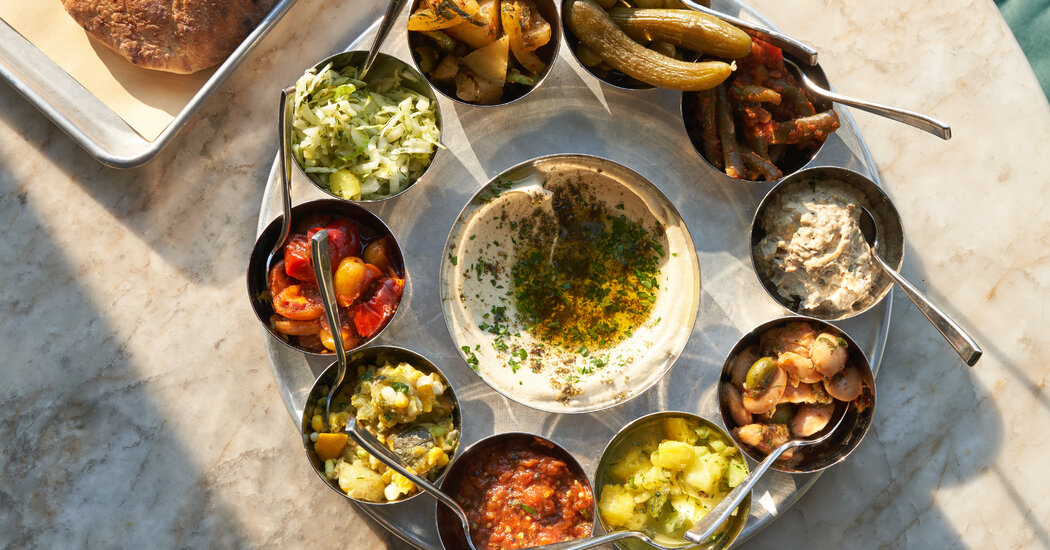
Indeed, any hope for reconciling differences in what has been called hummus diplomacy appears to have been dashed.
Lia Ronnen is the publisher and editorial director of Artisan Books and Workman Publishing, whose catalog is heavy with design and cooking books. The argument that Israeli food is stolen Palestinian food is a false narrative about the myriad origins and traditions of Israeli food, she said. And, she added, targeting American businesses that serve Israeli food is dangerous and has antisemitic implications.
“The food community is enforcing a narrative that is factually wrong and fomenting violence against Jews in America. That is totally tragic,” she said. “The food community is supposed to be a place that celebrates humanity and celebrates caring and celebrates truth.”
In the wake of social justice movements like Black Lives Matter, questions about cultural appropriation, who owns a recipe and who can profit from certain cuisines have forced conversations and reflections in restaurant kitchens and food media.
The war has made these questions especially urgent, said Reem Assil, the Bay Area chef and speaker who has family in Gaza and started Hospitality for Humanity with other Palestinian chefs and political organizers who were feeling isolated and grieving.
In addition to applying economic pressure, the organization is encouraging people who make their living through food to speak out against the bombings and American aid to Israel.
“The culture follows food,” Ms. Assil said. “Using food as a conduit for culture is a very powerful way of re-humanizing us.”
Samir Mogannam, the chef and owner of Beit Rima in San Francisco, describes his restaurant as Arab comfort food. He joined Hospitality for Humanity, but said he doesn’t support boycotting American restaurants serving Israeli food, pointing out that appropriating food from other cultures has happened throughout history.
“But if you are going to appropriate our food, give us credit,” he said. “If you say Israeli cuisine is an eclectic cuisine that pulls inspiration from the Jewish diaspora and local Palestinians, that is more respectable. But appropriating our food and erasing our existence are two different things.”
Naama Shefi, founder of the Jewish Food Society which archives recipes and the stories behind them as a way to preserve Jewish identity, has her doubts about whether food can build bridges at such a scary and dangerous junction.
“People need to educate themselves about the different cuisines, history and cultures of the region,” she said. “I am trying to stay optimistic. I am a believer in the power of food to educate and connect and I will keep being a believer because if not, I don’t know what’s left for us.”



